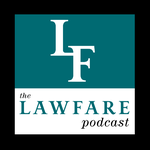Why the Online Advertising Market is Broken
In December 2020, ten state attorneys general sued Google, alleging that the tech giant had created an illegal monopoly over online advertising. The lawsuit is ongoing, and just this January, new allegations in the states’ complaint were freshly unsealed: the states have accused Google of tinkering with its ad auctions to mislead publishers and advertisers and expand its own power in the marketplace. (Google told the Wall Street Journal that the complaint was “full of inaccuracies and lacks legal merit.”)
The complaint touches on a crucial debate about the online advertising industry: does it, well, work? This week on Arbiters of Truth, our series on the online information ecosystem, Evelyn Douek and Quinta Jurecic spoke with Tim Hwang, Substack’s general counsel and the author of the book “Subprime Attention Crisis: Advertising and the Time Bomb at the Heart of the Internet.” Tim argues that online advertising, which underpins the structure of the internet as we know it today, is a house of cards—that advertisers aren’t nearly as good as they claim at monetizing our attention, even as they keep marketing it anyway. So how worried should we be about this structure collapsing? If ads can’t convince us to buy things, what does that mean about our understanding of the internet? And what other possibilities are there for designing a better online space?
Support this show http://supporter.acast.com/lawfare.
Hosted on Acast. See acast.com/privacy for more information.

